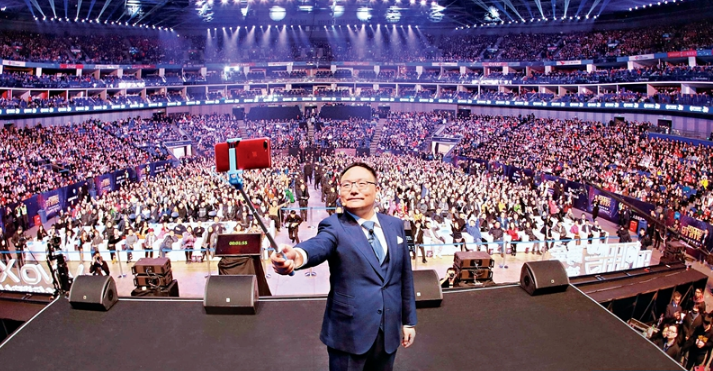Narrating 2.0 – The Boom of Audio Sharing Portals in China
China Today,May 28, 2018 Adjust font size:
A Successful Business Model
In addition to audio books, the most popular sections include business information, comedy & entertainment, love & self-help content, history and culture programs as well as formats for children.
The most listened-to podcast series on Ximalaya currently include some successful music and talk show programs produced by the streaming service itself such as “Good Voice” and “Good Night City,” but above all the channels of celebrities.
One of these popular formats is the Logic Show by Chinese media expert and IT entrepreneur Luo Zhenyu, in which he chats about business, society, and history.
The comedy talk show Guo Degang’s Xiangsheng, in which the famous performance artist Guo Degang introduces traditional Chinese crosstalk (so-called Xiangsheng) with changing guests, ranks similarly high on the popularity scale.
The well-known Chinese musician, music producer, and director Gao Xiaosong provides his audience with entertaining historical, cultural, and social anecdotes from all over the world in his talk show Morning Call.
In just a few years, Ximalaya has grown from a grassroots enthusiasts podcasting platform, on which initially mostly amateur speakers uploaded their content, to one of China’s most successful Internet companies, which has long since attracted investments of millions of yuan.
Copyright Strategy
Ximalaya is also China’s undisputed number one in the industry today in terms of copyright. In July 2017, the company stated that it held around 70 percent of the audio rights to the most popular titles in Chinese bookstores.
The portal has also signed strategic cooperation agreements with major publishing companies such as CITIC Press and China South Publishing & Media Group to publish audio versions of their bestsellers.
Apart from that, Ximalaya also cooperates with China Reading Limited, China’s largest platform for online literature. Thus, the company laid the legal foundation for future business success.
In view of the rapid rise of podcast providers, the times when young IT companies like Ximalaya competed for sponsors and cooperation partners are a thing of the past. Advertisers have long recognized the potential of China’s audio streaming services and are approaching the providers on their own.
More than 10,000 brands are now cooperating with Ximalaya. In addition to traditional advertising, many companies today also enter into direct co-operations with the hosts of successful channels, or even open their own channels via which they skillfully present their products.
As I interrupt my listening session of the Little Prince, an advertisement from Volkswagen promptly pops up on my mobile phone display. Some advertisers even go so far as to let audio hosts use genuine content to push their products.
For example, the Chinese umbrella manufacturer Jiaoxia had an episode about sun protection created by the successful audio blogger Caicai and distributed it via her channel on Ximalaya, with resounding success: Thanks to the skillful audio promotion, 20,000 umbrellas were sold within only 24 hours.

